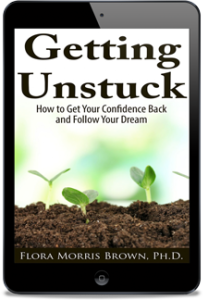 Today’s celebration of International Women’s Day is a global day celebrating the economic, political and social achievements of women past, present and future.
Today’s celebration of International Women’s Day is a global day celebrating the economic, political and social achievements of women past, present and future.
This year represents 100 years of campaigns from getting the right to vote to increasing opportunity for working women to have equal access to the training, technology and pay for competing in the global marketplace. Much has improved since 1911, of course, but women still do not enjoy equal pay for the same work as men, and globally are still the victims of violence, abuse and discrimination.
As I reflect on this day I think about my mother, who, in spite of discrimination and unequal treatment, still had a profound effect on me and others around her.
As an African American born and raised in Pine Bluff, Arkansas, my mother had plenty of reasons to keep her sights set low and settle for the status quo. Some things weren’t safe to do since you couldn’t even count on the white law enforcement to protect you. The murder of Black males and rape of Black women were often not even investigated.
The average Black woman around her counted herself lucky to get a job doing “day work” meaning they travelled for miles to work in the homes of white families all day and drag themselves back home in the evening to devote what energy they had left to their own families.
My mother saw a different future for herself
Thanks to segregation, the Black community was full of Black-owned businesses and entrepreneurs since that’s the only place they could set up shop, counting on patronage from their own people. Because she quickly learned to type, one of my mother’s first jobs was as a secretary at the Black-owned mortuary, Miller’s Funeral Home and Insurance Company in Pine Bluff. She was always so proud of that job because it not only gave her a prestigious position where she could wear business attire rather than a maid’s uniform, but also put her in daily contact a demanding and shrewd business man from whom she learned many lessons about running a successful business in spite of the racial discrimination and unfair treatment that surrounded them.
Multi-talented and eager to learn, my mother also learned to play the piano at an early age, and by adolescence was playing in a juke joint (crude building for dancing, music, gambling and drinking usually in Black rural areas) on Saturday nights and for the local church on Sundays. Because she could read music and “play by ear”, she was a sought-after pianist and organist all of her life until in her 90’s when dementia began to slowly delete the 1000’s of songs she had memorized in her lifetime.
My mother created a different future for herself
Always practical, my mother didn’t settle for the weekend money she picked up for her music, so she decided to also go to cosmetology school as a young adult, even though it meant a trek to Little Rock, AR, a formidable trip in 1930’s. With her cosmetology license in hand and a new husband who moved her to St. Louis, MO, she opened her first beauty shop in the front room of our small dwelling. (She told me it had been a chicken shack that she and my father got for cheap rent because they were willing to clean it up, put up a wall to turn one room into two, and create a crude toilet.)
My sisters and I grew up watching my mother run a successful beauty shop during the week, and slide into her position as pianist for the Children’s Choir at our church on the weekends. In addition to this busy schedule, she managed to turn out beautiful outfits for us to wear to school, cook great meals and participate in PTA.
By the end of my first year of college, we moved to California, enjoying the many opportunities that were flying open during the 60’s.
Like many young people I didn’t fully realize and appreciate the many lessons I learned from my mother until much later. She was amazing not only for her many talents and aspirations, but mostly for her unwillingness to be defined by the unfair conditions that were a reality around us. Mostly I remember her
1. Money wisdom–she was a thrifty and a smart shopper, but she always stressed that it was wiser to spend more and buy a few quality outfits than a bunch of cheap outfits that would soon wear out. Because she was a great seamstress, she could create classy dresses from Vogue patterns and spend the money she saved on top-of-the-line shoes.
2. Courage–she once said that she took us to any events where they would let Black people attend. I can remember travelling by bus (we didn’t have a car) for a long ride to attend the circus at the Arena. Although Blacks could attend, the concession stands wouldn’t sell refreshments to us so I remember her hauling a bag full of snacks so we could enjoy munching during the circus.
3. Resourcefulness–From her customers, church members, the newspapers and radio, she always found enrichment and educational activities and events that my sisters and I could attend. Summers were filled with YWCA camp and then Vacation Bible School, and of course the school year was loaded with plenty to do after school and at church on weekends.
4. Willingness to let us make some decisions for ourselves–By the time I was in high school the St. Louis schools decided to desegregate schools by swooping some of the gifted students from our Black high school to a white school miles away. When I was offered this “opportunity” I am so grateful that my mother let me decide.
In spite of all the technology and superior instruction this white school was going to offer me, I could not see the sense of leaving my Black high school where I had friends, was active in many activities and excelling academically, to catch a bus in the early dawn to go across town to an unwelcoming environment where I would have to face untold treatment from fellow students and teachers alike. I clearly didn’t have a pioneer spirit, nor the same courage my mother had. I saw no benefit for me in being the tool of the school district to try to correct the wrongs of the past.
As I reflect on International Women’s Day, I think fondly of my mother who did her part to enhance the lives of her daughters and all the other young women whose lives she touched. Her favorite saying and song was “If I can help somebody as I pass along, then my living will not be in vain.” (You can hear Patti LaBelle singing the song here http://www.youtube.com/watch?v=edBGuudFeu8)
I encourage you to do your part through a church, charity, school, community or personal effort to ensure that the girls and women in your local area have safe, enriching and inspired lives. In this way, your living will not be in vain, and our global goals will be met, one neighborhood at a time.


 “Nerves and butterflies are fine – they’re a physical sign that you’re mentally ready and eager. You have to get the butterflies to fly in formation, that’s the trick.” ~Steve Bull
“Nerves and butterflies are fine – they’re a physical sign that you’re mentally ready and eager. You have to get the butterflies to fly in formation, that’s the trick.” ~Steve Bull According to a recent article in
According to a recent article in 

Recent Comments